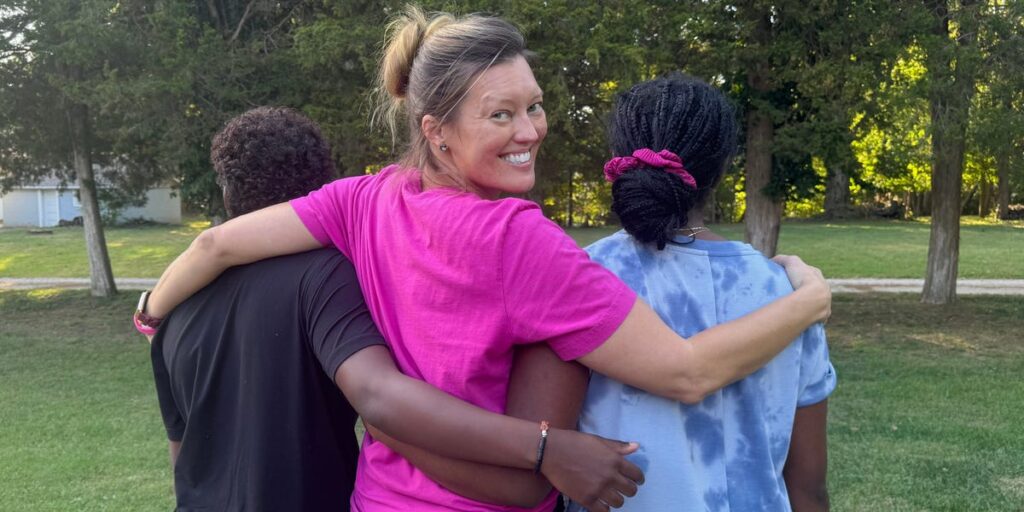Teenagers, including my own two (almost three), are known for their one-word replies to parent inquiries, whether it be in text or in person.
My kids are no exception. They often shut themselves into their bedrooms or bury their heads in a screen when I want to talk to them. Unsurprisingly, communication isn’t their strongest suit.
Like many parents, I found myself frustrated. They were pulling away, while I was pushing in. Of course, I know a teen’s job is to make strides toward being more independent. Yet, I also know that in this season of their lives, their brains are still developing, and they very much need parental awareness and guidance.
By switching to “I” statements, I’ve managed to drastically improve the communication between myself and my teen kids. After reading, “How to Talk So Teens will Listen and Listen So Teens Will Talk,” by Adele Faber and Elaine Mazlish. I began creating my own tailored strategies about how to better communicate with my tween and teens.
Here’s how I recently incorporated this strategy into a conversation with one of my children about their grades.
I noticed
Whether I’ve noticed something negative or positive, my kids tend to communicate more when I share a simple observation. Recently, I approached one of my teens and said, “I’ve noticed your grades have been dropping lately.”
By stating what I observed, while taking ownership of my own observation, I was able to confront them about something they could have very easily taken the wrong way. I was trying to cut down on any defensiveness.
I quickly followed this up with another important “I” statement to get them talking.
I wonder
Stating my observation opened the door to a conversation. Then I followed up with a hypothesis, “I wonder if trying to balance sports practices and games with homework is challenging for you.”
I know my teens are sometimes overwhelmed by options and struggle to pull a “why” out of thin air, so I like to help them along.
I know
Next, affirmation came in. I saw this as my chance to build them up and say something positive, so I told my child that I know they are good at track, and that running track is great for their brain and body. This way, I wasn’t blaming the sport or my kid.
Then I assured my teen by saying, “I don’t expect that you stop going to practices. I am wondering what we can do to balance your schedule more.” I think the “we” has been an important part of this strategy for my family, so I’m not putting all of the pressure to fix the issue on my child.
Next, I stated the information I knew to be true — track is tough, there are 3-hour practices, four afternoons a week — then I slipped in something about how when practices started increasing, grades started dropping to help connect the dots for my teen.
I am willing
Once I stated the issue, I shared how I’m willing to help. In this case, I offered to assist with their laundry chore on nights that they have practice, while reminding them the chore is still their responsibility on other nights.
I asked if this accommodation might help them focus more on homework in the time they do have, and they agreed.
I feel
I always try to share my feelings in a constructive way. Saying something like “I am so angry your time-management issue is causing you to have a C-average,” is something that would shut my teen down. Instead, sharing something along the lines of, “I feel frustrated that there’s a time management issue, because it’s starting to impact the whole family,” paints a bigger picture that reminds them that we are a team.
This is working for us
I’ve found that conversations with my teens have greatly improved in the last several months since I’ve started centering myself more, while sharing my observations and willingness to help.
Instead of possibly “flying off the handle,” they now expect me to engage in a back-and-forth conversation where each of us holds some responsibility for the outcome.
Read the full article here
















